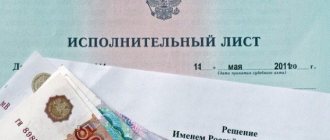An organization or individual entrepreneur may be held liable for non-payment of taxes or late payment of taxes. There are three types of liability: tax, administrative and criminal.
Which of the following types can be used in a particular case? This depends on who committed the offense of non-payment of tax - an organization or an individual entrepreneur, as well as on their status (taxpayer or tax agent).
Let's consider each type of liability to which a person can be held for non-payment or incomplete payment of tax amounts.
Object and tax base of personal income tax
In the context of the Tax Code of the Russian Federation, income as an object of taxation is formulated as follows.
This is an economic benefit if it can be identified and valued in monetary form (Article 41). In relation to personal income tax, according to Art. 210 of the Tax Code of the Russian Federation, is income in cash and in kind, material benefits, the types of which are named in Art. 212 of the Tax Code of the Russian Federation.
It should be noted that the right to dispose of income is equivalent to receiving it. For tax residents, the tax base also includes income received abroad.
Read more about the tax base for personal income tax in the article “Procedure for determining the tax base for personal income tax”.
Is there any liability for individuals and individual entrepreneurs for non-payment of personal income tax?
The tax period for personal income tax is a calendar year. An individual pays the due amount of NLFL on self-declared income no later than July 15 of the year following the given tax period (clause 6 of Article 227, clause 4 of Article 228 of the Tax Code of the Russian Federation).
Failure to pay personal income tax means the occurrence of tax arrears subject to payment to the budget. Penalties are charged on the amount of overdue debt as compensation for losses to the treasury for failure to fulfill the taxpayer’s obligations within the due time limit.
To individual entrepreneurs and notaries (lawyers) with private practice, for non-payment (or late payment) of advance payments during the tax period in accordance with clause 9 of Art. 227 of the Tax Code of the Russian Federation, a requirement to pay a penalty may also be presented.
Part of the income that is subject to taxation under Art. 209 of the Tax Code of the Russian Federation, is subject to personal income tax by the tax agent (Article 226 of the Tax Code of the Russian Federation). The tax agent’s improper fulfillment of the obligation to pay the tax withheld from the taxpayer’s income has nothing to do with the taxpayer.
How to fight off a fine
The taxpayer must plead not guilty or extenuating circumstances. Plus provide evidence.
Here's when you can report them:
In explanations
During a desk inspection, the inspector may ask for clarification. You must respond in writing within five days. In the explanations you can explain your innocence.
In objections to the inspection report
Based on the results of the desk and field audit, the tax office draws up a report. It says what the tax office plans to fine you for. The entrepreneur has one month to submit written objections with evidence.
Objections are submitted to the inspector or sent by mail. But often the tax office does not take into account the objections and still makes a decision with a fine.
In an appeal against the decision
The payer has a month to file an appeal against the inspection decision to the regional Federal Tax Service. This month the decision has not yet been implemented, the account has not been blocked, and the money has not been debited.
The complaint must be submitted in writing through your district inspectorate. It should be noted in the complaint that the inspectors did not take into account the lack of guilt. Within three days she will be sent to the Federal Tax Service.
In a complaint, if the decision is already being implemented
If an entrepreneur did not know about the inspection, missed the decision, and learned about the fine by accident, he has a year to file a complaint with the Federal Tax Service. But the decision will already be implemented, and the money for the fine will be debited from the account.
The tax office website has a service Find out about the complaint. You can track your complaint there.
If the tax office does not cancel the fine, the last chance is an arbitration court.
When a taxpayer is not held accountable for non-payment of personal income tax
In order to be held accountable, in addition to the event of an offense (non-payment of tax), the guilt of the taxpayer is necessary (Article 109 of the Tax Code of the Russian Federation). For example, the taxpayer’s guilt is obvious if, even though he had such an obligation, he did not declare the income received and, accordingly, did not pay tax on it to the budget. This gives every reason to fine him for non-payment of tax.
The situation is different with respect to income, from which tax must be withheld by the source of payment—the tax agent. The taxpayer should not be held responsible for his actions (inaction). So, if an agent has not withheld tax from a taxpayer, he must notify the taxpayer and the tax authorities about this. The notification period is no later than March 1 of the next year (clause 5 of Article 226 of the Tax Code of the Russian Federation). Based on this message from the tax agent, tax authorities must present this personal income tax amount for payment to the taxpayer by sending him a tax notice. If the agent did not fulfill his notification function, or if the tax authorities for some reason did not send a notification, it is illegal to fine the taxpayer.
A duly established circumstance that the taxpayer did not know that personal income tax was not withheld from him is proof of his innocence. And this is by virtue of clause 2 of Art. 109 is considered an independent and sufficient argument for non-collection of the fine established by Art. 122 of the Tax Code of the Russian Federation. The Ministry of Finance also speaks about this in letter dated June 10, 2013 No. 03-04-05/21472. However, the department does not make an unambiguous conclusion, but only indicates that in the event of non-payment of personal income tax arising in such circumstances, liability is assigned taking into account the presence of guilt.
You can learn about which income is not subject to income tax in this article.
Administrative
Violators are subject to administrative liability for tax evasion under the Code of Administrative Offenses of the Russian Federation. An administrative fine is imposed on responsible officials - the manager, the chief accountant.
Usually, fines are issued according to the administrative code. But there is a more serious punishment - disqualification of the leader (Article 3.11 of the Code of Administrative Offenses of the Russian Federation). If the regulatory authorities disqualify the director, you will have to appoint a new manager, change the statutory documents and make changes to the Unified State Register of Legal Entities.
IMPORTANT!
After the statute of limitations (one year) has expired, administrative liability for non-payment of taxes by a legal entity and other violations of tax legislation is not assigned. For violations of laws and accounting regulations, the statute of limitations is longer—two years.
What sanctions are provided for late payment of personal income tax?
Failure to pay personal income tax by an individual, coupled with the absence of tax declaration in cases established by law, entails liability in the form of a fine provided for in Art. 122 of the Tax Code of the Russian Federation.
According to Art. 229 of the Tax Code of the Russian Federation, individuals are required to file a tax return no later than April 30 at the end of the tax period:
- on income from business activities;
- for remuneration from the sale of property, etc. income;
- persons recognized as tax residents - when receiving income from foreign sources.
Failure to pay personal income tax, aggravated by failure to submit a 3-personal income tax return, leads to the collection of a fine in the amount of 20% of the amount of unpaid tax (clause 1 of article 122 of the Tax Code of the Russian Federation).
Lack of awareness of an individual about the existence and amount of the obligation to pay personal income tax may turn out to be a very unpleasant surprise, since the tax authority will present a lump sum payment of arrears, penalties and, possibly, a fine.
Administrative liability... ...if the tax has not been paid by the organization
An official of an organization is subject to administrative liability for a gross violation of accounting requirements, expressed, for example, in understating the amount of taxes and fees by at least 10% due to distortion of accounting data.
For this violation, according to Art. 15.11 of the Code of Administrative Offenses of the Russian Federation, a fine in the amount of 5,000 to 10,000 rubles may be imposed on an official. (clause 1). In the event of a repeated offense, the person will face a fine of 10,000 to 20,000 rubles. or disqualification for a period of one to two years (clause 2).
This responsibility applies to both the taxpayer and the tax agent.
For your information
According to Art. 7 of the Federal Law of December 6, 2011 No. 402-FZ “On Accounting”, accounting is organized by the head of an economic entity (clause 1), who is obliged to entrust accounting to the chief accountant or other official of this entity or to enter into an agreement for the provision of services on accounting. The head of an organization that has the right to use simplified accounting methods, as well as the head of a medium-sized business entity, can take over the accounting (clause 3).
Thus, an administrative fine will be imposed on the person responsible for accounting - the director, chief accountant or other official of the organization.
Based on the meaning of clause 7, part 1, art. 24.5 of the Code of Administrative Offenses of the Russian Federation, if proceedings were initiated against this person for an administrative offense, and then a decision was made to initiate a criminal case, the administrative proceedings are subject to termination.
What happens for non-payment of income tax by a tax agent?
Tax agents charge tax on income subject to personal income tax on a monthly basis on an accrual basis from the beginning of the year. Timely identification of the obligation to pay personal income tax and fulfillment of the deadline for its payment is important from the point of view of the amount of losses for economic entities that are tax agents.
In addition to the collection of arrears and penalties (clause 1 of Article 46 of the Tax Code of the Russian Federation), Art. 123 of the Tax Code of the Russian Federation gives the tax authority grounds to impose a fine on tax agents not just for non-payment of tax, but even for delay in payment, for example by one day. At the same time, tax and judicial authorities can reduce the amount of the fine on the basis of subsection. 3 p. 1 art. 112 of the Tax Code of the Russian Federation.
There will be no fine, according to paragraph 2 of Art. 123 of the Tax Code of the Russian Federation (new edition of the Tax Code, effective from January 28, 2021), if the tax agent simultaneously:
- submitted tax calculation 6-NDFL to the inspectorate without delay;
- reflected reliable information in the calculation and did not underestimate the amount of tax;
- independently transferred the tax and penalties to the budget before the Federal Tax Service discovered the underpayment or ordered an on-site tax audit.
Read more about the fine rules in force in 2021 here.
In addition, a penalty cannot be imposed if the withholding agent failed to withhold tax due to the fact that the income was paid in kind. However, here you will need to timely submit a 2-NDFL certificate with sign “2”.
To learn how to minimize liability, see the material “Financial difficulties of a tax agent: organizations can mitigate liability”.
See also “Will paying personal income tax before drawing up an inspection report save you from a fine?”
For example, an organization carries out retail trade and pays salaries using cash in the cash register received in cash from customers. Personal income tax is paid within 2-3 days after payment of income.
Table 1
An example of the amount of a fine for late payment of personal income tax by a tax agent
| Issuance of salary in cash | Personal income tax payment | Fine (item 4 × 20%) | ||
| date | Sum | date | Sum | |
| 1 | 2 | 3 | 4 | 5 |
| January 10 | 300 000 | January 12 | 39 000 | 7 800 |
| February 10 | 300 000 | 12th of February | 39 000 | 7 800 |
| 10th of March | 300 000 | March 12 | 39 000 | 7 800 |
| April 10th | 300 000 | 12th of April | 39 000 | 7 800 |
| May 10 | 300 000 | 12 May | 39 000 | 7 800 |
| June 10th | 300 000 | June 13 | 39 000 | 7 800 |
| July 10 | 300 000 | July, 12 | 39 000 | 7 800 |
| 10th of August | 300 000 | 12th of August | 39 000 | 7 800 |
| 10 September | 300 000 | 12-th of September | 39 000 | 7 800 |
| October 10 | 300 000 | October 12 | 39 000 | 7 800 |
| 10th of November | 300 000 | November 12 | 39 000 | 7 800 |
| December 10 | 300 000 | 12 December | 39 000 | 7 800 |
| Total | 3 600 000 | 468 000 | 93 600 | |
As a result, failure to pay personal income tax on time will lead to significant losses in the form of a fine.
Is it possible to reduce the amount of the fine for late transfer of personal income tax and how to fill out the payment form correctly, find out in ConsultantPlus. Study the material by getting trial access to the K+ system for free.
Criminal
The most serious offense is criminal. In Art. 198-199 of the Criminal Code of the Russian Federation indicates the amount of criminal liability for non-payment of taxes - for acts on a large scale from 2,700,000 rubles for 3 financial years in a row. Acts on an especially large scale start from 13,500,000 rubles for 3 financial years in a row.
The Criminal Code of the Russian Federation regulates the procedure for compliance with the norms and rules of current legislation. If a taxpayer deliberately does not pay or evades transferring fees, he faces punishment under the Criminal Code of the Russian Federation (clauses 3, 8 of the resolution of the plenum of the Supreme Court of the Russian Federation No. 64 of December 28, 2006).
They will also be punished for fraud with tax transactions - under Art. 159 of the Criminal Code of the Russian Federation. This also takes into account the forgery of documents for VAT reimbursement. The penalty for fraud is a fine of 120,000 rubles or imprisonment for up to 2 years. If the manager and chief accountant are recognized as an organized group, they will be imprisoned for up to 10 years with a mandatory penalty of up to 1,000,000 rubles.
IMPORTANT!
Understatement of the tax base due to mechanical or computational errors in the declaration is not grounds for criminal penalties.
Statute of limitations for collecting fines, arrears, penalties
Presentation of a fine by the tax authority under Art. 122 of the Tax Code of the Russian Federation is limited to 3 years (Article 113 of the Tax Code of the Russian Federation). The maximum period for receiving a fine should be calculated in accordance with clause 4 of Art. 109, art. 6.1 of the Tax Code of the Russian Federation in relation to specific circumstances.
But for taxes and penalties the statute of limitations under Art. 113 does not apply. This is explained by the fact that the pretrial period is valid only for sanctions that are a measure of responsibility for an offense. Due to this, the moment when the obligation to pay personal income tax arises does not matter for establishing the fact that the tax authority missed the deadline for submitting a requirement to pay personal income tax to the taxpayer in accordance with paragraph. 3 tbsp. 45 of the Tax Code of the Russian Federation.
The amount of tax not paid on time is detected by the tax authority through an audit (desk or on-site) and other control procedures. As a result, an internal act is drawn up indicating that an individual has overdue debt. The tax authority is not required to notify the payer about this. The fact of detection of arrears is communicated to the taxpayer only if it is certified by an audit report.
A demand for payment of tax and penalties is issued by the tax authority if there is arrears within 3 months after discovery of the fact of non-payment of tax on time (clause 1 of Article 70 of the Tax Code of the Russian Federation).
Subsequently, according to Art. 45, paragraph 3 of Art. 46, art. 69, 70 of the Tax Code of the Russian Federation, the tax authority is obliged to take actions to collect taxes by foreclosure on bank accounts, at the expense of other property, including through judicial procedures.
In general, summing up the terms of all procedural actions of the tax authority for collection, the period for claiming arrears and penalties is about 3 years. After this period, it may be very difficult for the tax authority to collect arrears and penalties (see resolution of the Federal Antimonopoly Service of the Moscow District dated November 10, 2011 No. A40-145221/10-13-878). Similar conclusions are confirmed by the letter of the Ministry of Finance of Russia dated October 29, 2008 No. 03-02-07/2-192.
When the fine is reduced: mitigating circumstances
The Tax Code lists mitigating circumstances. You can use the list or refer to something of your own. If at least one circumstance mitigates the guilt, the tax office is obliged to reduce the fine by at least two times, or even more - Art. 114 of the Tax Code of the Russian Federation, clause 16 of the Resolution of the Plenum of the Supreme Arbitration Court of the Russian Federation No. 57.
Mitigating circumstances from 112 of the Tax Code of the Russian Federation are as follows:
— The report was not submitted and the tax was not paid due to a combination of difficult personal circumstances. For example, illness and lack of money;
— The entrepreneur was threatened or violated the law due to financial dependence;
— There was no money in the individual entrepreneur’s account.
The tax office itself suggests taking into account the following:
— The delay in filing reports and paying taxes is insignificant;
— Admission of guilt, independent additional payment of tax, submission of an updated declaration;
— Social orientation of business, for example, agricultural production;
— Stopping the activities of individual entrepreneurs;
— Retirement age of individual entrepreneurs;
— No damage to the budget, constant overpayment, committing a violation for the first time.
Examples of mitigating circumstances that worked
An entrepreneur was fined 29,000 rubles for failure to pay personal income tax after losing the right to a patent. The court reduced the fine to 900 rubles. We took into account that the entrepreneur had no intent and had no old tax debts - case No. A63-12226/2016.
The company submitted clarifications for SZV-M for employees on time. Moreover, insurance premiums were paid on time. The Pension Fund fined 4,500 rubles. The court reduced the fine four times to 1,125 rubles. The rights of workers were not violated, the budget was not damaged either - case No. A28-14462/2020.
There is also an aggravating circumstance in the code - fortunately, only one. The fine is doubled if the tax office has already issued a fine for the same violation in the last 12 months.








